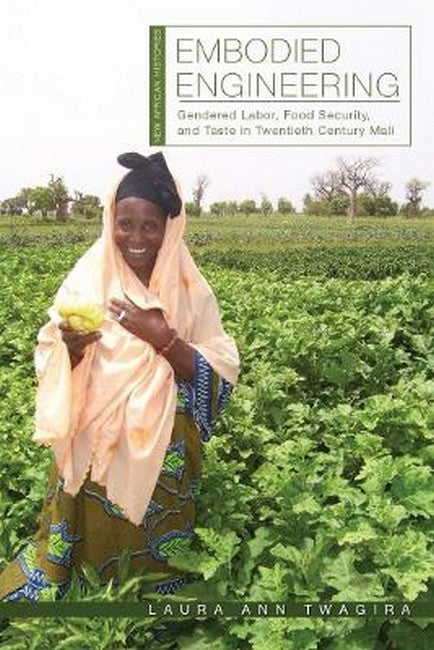Laura Ann Twagira is an associate professor of history at Wesleyan University. She edited the "Africanizing Technology" special issue for the journal Technology and Culture and was a scholar in residence at the Schomburg Center for Research in Black Culture in New York City.
Request Academic Copy
Please copy the ISBN for submitting review copy form
Description
List of Illustrations Acknowledgments A Note on Language Abbreviations Introduction Chapter 1 Making the Generous Cooking Pot, ca. 1890-1920 Chapter 2 Body Politics, Taste Matters, and the Creation of the Office du Niger, ca. 1920-44 Chapter 3 "We Farmed Money": Reshaping the Office and Reclaiming Taste Chapter 4 Reengineering the Office: Cooking with Metal Pots and Threshing Machines Chapter 5 Rice Babies and Food Aid: Reengineering Women's Labor and Taste during the Great Sahel Drought Conclusion Notes Bibliography Index
"Through vivid stories of individual innovation and strategies of survival, Twagira offers a new perspective on twentieth-century biopolitics in Mali. Embodied Engineering adds important critical nuance to understandings of environmental crisis, cultural value, and gendered knowledge production in West Africa." - Emily S. Burrill, author of States of Marriage: Gender, Justice, and Rights in Colonial Mali "By focusing on gender ideology, food technologies, and development initiatives, Twagira encourages readers to consider the "lived material bodies" of women in twentieth-century rural Mali.... Summing up: Recommended." (Choice 59, no. 10 (June 2022)) "A fantastic contribution to multiple fields of study, both within and beyond the academy. Twagira fulfills her stated objectives, particularly that of addressing the prevalent assumptions of African women as without access to technology and static in their work. Her research shows the immense agency and importance of Malian women in their capacity to cultivate embodied relationships with the natural world through the cultivation, collection, and cooking of food." - Inigo Acosta (H-Sci-Med-Tech / H-Net Reviews) Twagira draws on a rich corpus of archival documents, but it is her impressive use of folktales, oral histories, and conversations with Office du Niger residents that allows her to challenge the highly idealized narratives of the project presented in the colonial and postcolonial bureaucratic documents. (Technology and Culture)

